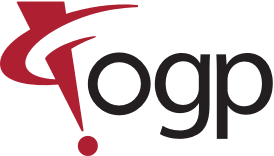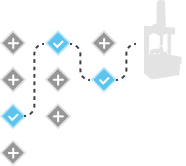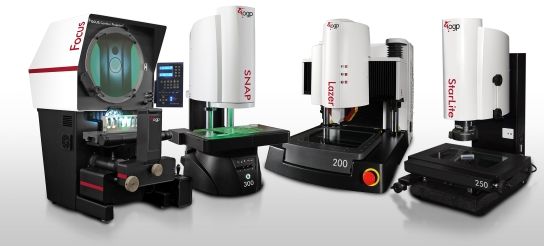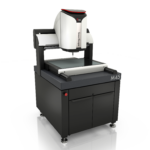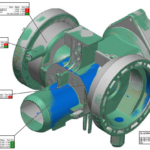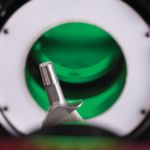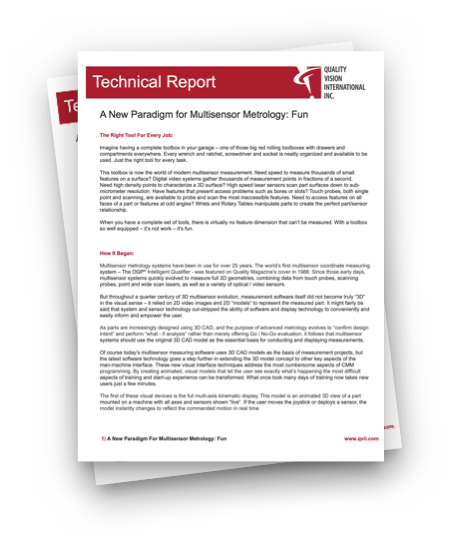As a quality control professional you are well aware of the challenges in your measurement operation. No one knows your systems better than you.
Unfortunately, finding good solutions can be quite a journey. The marketplace offers different technologies, machines, and software that use numerous methods to measure parts. Add to this complexity a field of industry competitors vying for your business, and you may soon have a very complicated decision plate.
If you find this process time-consuming and would rather cut to the chase, now may be the time to work with a proven metrology specialist. Leveraging the knowledge, experience, and wisdom of an outside partner can bring greater efficiency in your operation, confidence in your decisions, and better overall measurement outcomes. Whether you need new equipment, tweaks to your existing program, or a whole new perspective of how your operation runs, an outside expert opinion can be invaluable.
In this article, we’ll explore five tips for choosing a good metrology specialist. We believe this is best accomplished with local metrology experts who are qualified to evaluate your challenges, understand how others in the marketplace have solved them, and recommend solutions that may not even be on your radar.

1.) Work With a Local Metrology Specialist
First and foremost, your partner should be local. Evaluating your operation and presenting potential solutions may require meeting multiple times for application studies and product demonstrations. You may be invited to their home office or lab where they can demonstrate a variety of solutions. Geographical distance can limit access to your partner, especially during the testing and evaluation phases. The last thing you want is to slow progress down or add unnecessary travel expenses to the cost of your solution.
2.) Embrace a Consultative Approach
Good metrology specialists bring high value in the form of their industry knowledge, skills in metrology, and influence within the profession. They should be able to come to your site, evaluate and understand your operation, current metrology capabilities (both systems and people), throughput needs, and pain points. They should be able to present multiple solutions based on the inefficiencies they perceive. You will receive wisdom that only comes from years of working with numerous manufacturing clients implementing highly customized and successful metrology solutions.

A couple things to keep in mind as you begin the search for an outside metrology expert:
Rather than explaining your challenge and proposing your own solution up front, allow a potential partner to study your operation and present multiple solutions based on their expertise.
For example, let’s say you were convinced a new Coordinate Measuring Machine (CMM) would speed up measurement time and throughput in your operation. You meet with an industry representative and end up buying a new CMM. Mission accomplished! After purchase and installation, the CMM indeed reduced your measurement time by 15%. Unfortunately, a different type of metrology system on the market would have cut your measurement time by 40% with the same accuracy.
An industry representative who agrees with you and moves directly to purchasing a solution is not really providing consulting services at all. If they simply agree and counter-propose the same option you’re already thinking of, you may be missing out on opportunities to find better solutions. Instead, seek advice from a partner that approaches your operation from a different perspective.
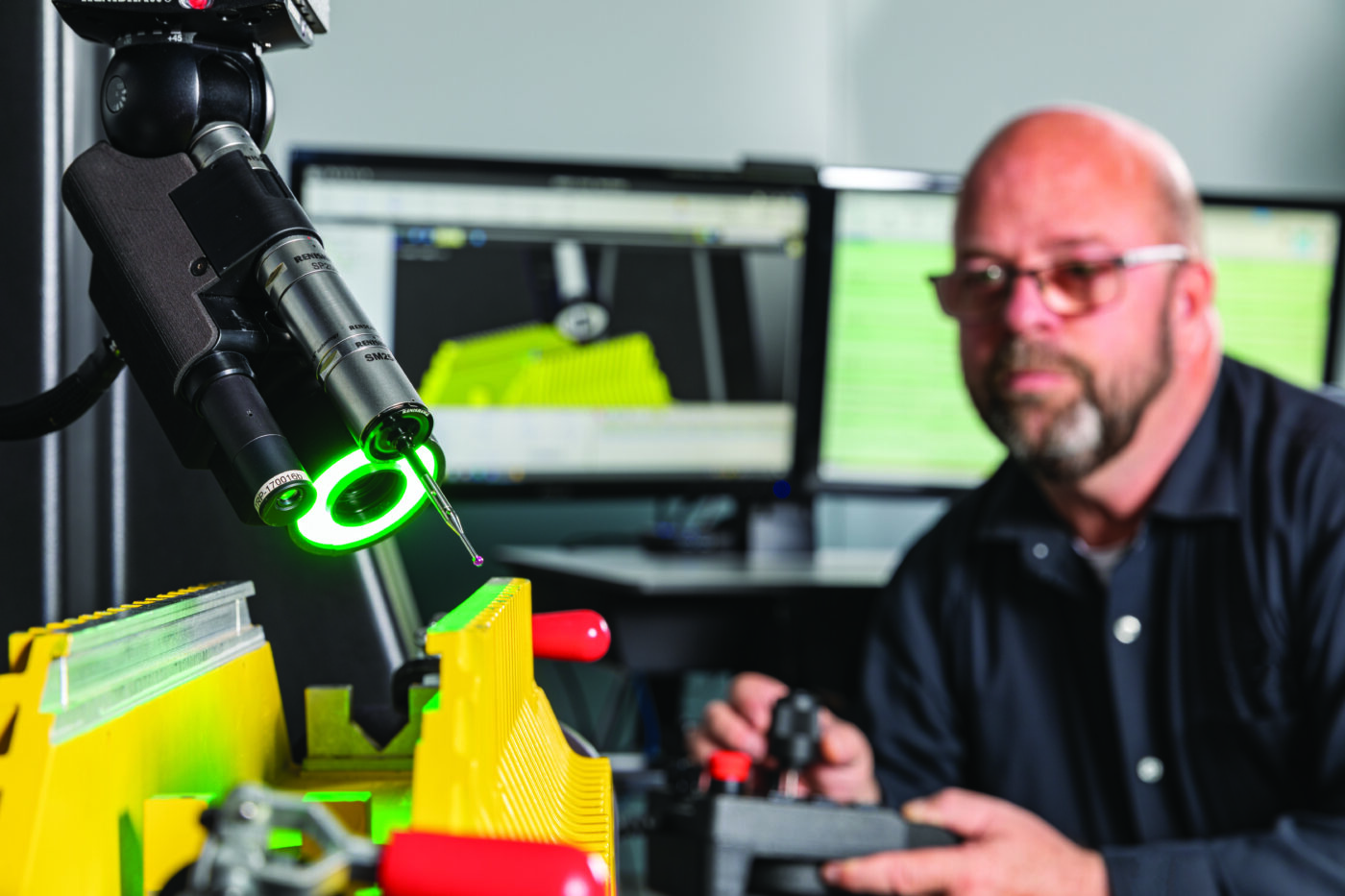
In another scenario, you may perceive a potential partner is simply trying to “upsell” or “over sell” you more than you believe you need.
For example, let’s say you manufacture parts in a certain size range and are looking at metrology systems with relatively small stages to measure them. But your partner is proposing a different type of system with a much larger measurement volume because a developing new market is looking for similar parts in a much larger size. In this case, your partner is proposing a higher cost solution to give you the option of serving this market in the future.
When this happens, it’s fine to be skeptical. Just ask for careful explanation of your partner’s thought process. They should be able to justify how the solution will meet both your current and future challenges, and allow you to make the final decision.
Finally, evaluate their abilities on the following criteria:

Experience in Metrology
A good metrology specialist must be a good metrologist. Obviously, they must understand dimensional metrology, calibration and testing methods, Geometric Dimensioning and Tolerancing (GD&T), and nationally recognized standards. They must be strong analytical problem solvers able to communicate well with your engineering and manufacturing teams. They should have experience programming detailed metrology software routines to measure parts.

Experience in Manufacturing
Your ideal partner should have a broad and deep knowledge of the processes of manufacturing from design and prototyping to production, assembly, and quality assurance. Their knowledge should include best practices, industry trends, and new technologies on the market. It should include an understanding of how metrology and quality assurance operations impact business requirements in manufacturing. Knowledge of budgeting, inventory, supply chain, regulatory compliance, and many more factors should all be in the wheelhouse of an experienced metrology expert.

Tested Wisdom
Usually, this level of knowledge only comes from working with a variety of businesses and unique applications over a long period of time. Ask for your partner’s list of past clients and the types of operations they run. But keep in mind that not all client implementations may have been perfect. Nothing develops perspective more than testing and trials, successes and failures, and learning to navigate through the toughest of circumstances. Indeed, a well-rounded partner will have seen it all and learned from every implementation.
Incidentally, for your benefit, it would be very helpful if your partner could arrange visits to similar operations where they’ve installed successful solutions. Understandably, confidentiality concerns can prevent sharing information. In that sense, the partner should be highly respectful of privacy concerns and the protections of non-disclosure agreements.

Objectivity
A good metrology specialist with a solid metrology background should be able to look at your quality assurance operation and quickly identify inefficiencies. Analysis should include your systems, your processes, your adherence to industry measurement standards, and procedures for documentation, reporting, and auditing.
One desirable characteristic good partners have is a strict matter-of-factness about your operation. Your partner should be quick to identify and address challenges in areas where you may have “tunnel vision”. But don’t let their abrupt opinions sting. Instead, use them to your advantage. An expert’s objectivity can be especially important in operations where strong employee opinions or even family member dynamics are impeding progress.

Ability to Offer Customized Solutions
Finally, you should expect an ideal partner to offer complete customized solutions. The opposite would be true if the partner proposed off-the-shelf once-size-fits-all solutions, or equipment that solved only part of your issue. Conversely, value in a good solutions partner comes from resourcefulness and ability to present complete solutions with pros and cons, cost-benefit analysis, and other business justifications.
Keep in mind, with a custom solution you may be required to modify your operation. Creative in-house work may be part of your future solution.

3.) Leverage Your Partner’s Expertise of Available Products
We’ve all heard stories about companies that purchased metrology equipment only to find out it didn’t live up its advertised specifications. We’ve also heard stories about overly complicated equipment shop floor workers couldn’t use, or software packages nobody had time to learn. These are all avoidable circumstances when a solid metrology solutions partner has actual hands-on experience using equipment and testing its limitations in real-life scenarios. Knowing product specifications and fine print on sales literature is one thing. Proving it out is another.
Sometimes new technology equipment is so cutting-edge a good partner hasn’t had time to experience using it. In this case, leverage their services to vet the equipment properly with the manufacturer. You may not have the time for this, but if the option is important enough to consider, let your partner go to bat and report back on results of their findings.
4.) Leverage the Partner’s Value Added Services
A good metrology specialist does much more than advising. Preferably they also supply the very best technologies at competitive prices and provide expert services and training to implement complete solutions. Their post-implementation support should be just as good as their help in finding the right solution.

Technical support
For example, a good partner will have fully trained factory-authorized and certified service engineers on call to maintain, fix, and calibrate your machines quickly on-site. Those engineers will have ongoing training and meet the requirements of ISO/IEC 17025:2017 standards, which are general requirements for the competence to carry out testing and calibration.
It’s also good if the partner offers outsourced inspection, testing, and programming services in times when internal resources may be limited.

Training
Good training is key to getting the most out of any measurement solutions you implement. It is important that your partner offers qualified machine and software training for your staff on-site or at their location.

Best equipment in the Marketplace
Finally, it’s helpful if your partner offers product lines from leading equipment manufacturers. Ideally, they will have a breadth of long-term industrial partnerships and a deep understanding of product capabilities, differences, and supply chain logistics behind them.
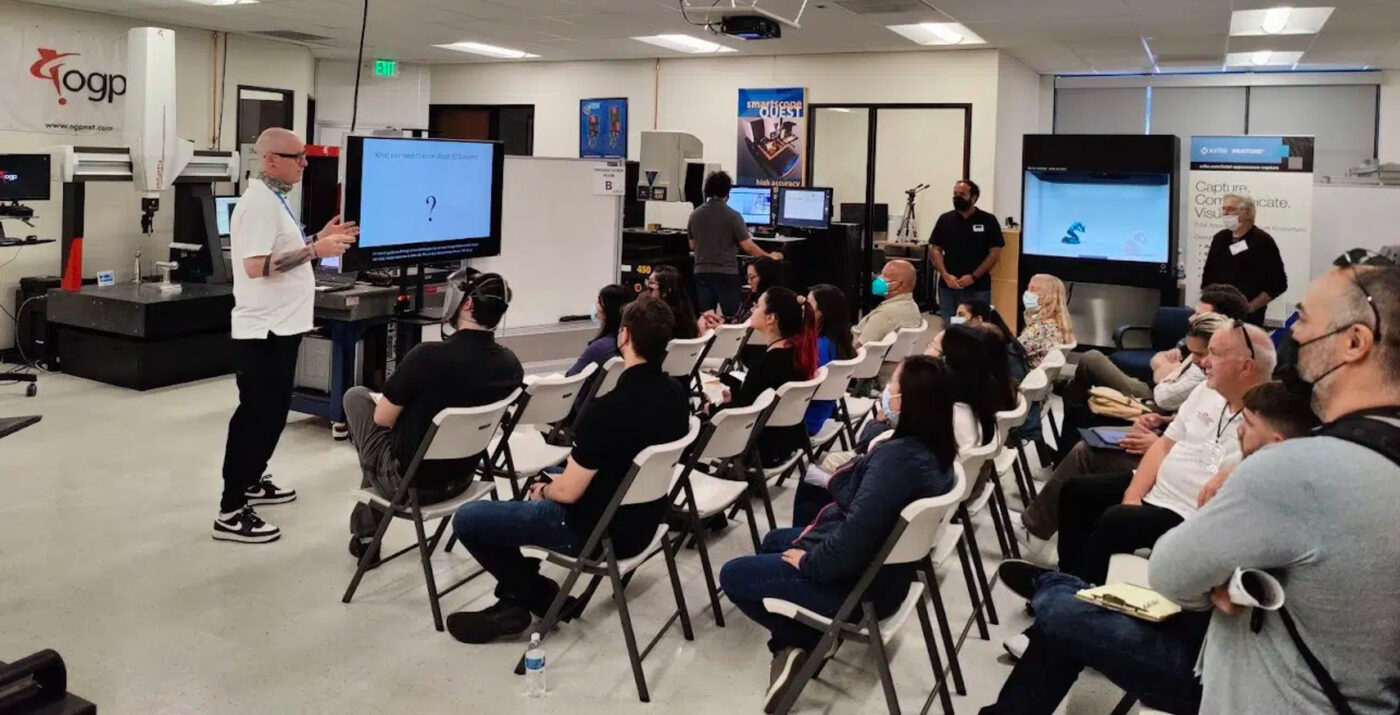
About OGP Metrology Partners
OGP Authorized Representatives are metrology specialists, qualified to evaluate your measurement requirements and recommend the solution that best fits your needs.
As a manufacturer, OGP has chosen strategically to sell our products through Authorized Representatives. OGP Authorized Representatives have vast experience as metrology solutions experts, the ability to partner with clients, the knowledge of products in the marketplace, and a full complement of services provided with solutions. Together as a manufacturer/distributor network, we all know technology and innovation may solve problems. But it is the trust between all parties that is the key component of establishing long-term customer relationships.
Your local metrology specialist is ready to help with evaluation of your operation, solutions proposals, product details, demonstrations, training, and purchase information. Visit the “Find A Rep” page to contact an OGP an Authorized Representative in your area.
